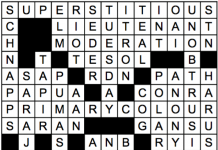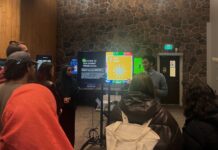Welcome to residence, your home away from home while you attend the University of Waterloo. Whether you’ve lived away from home before or this is your first time, there is always a community to be found and new steps to be taken in your sustainability journey. Here on campus there are lots of opportunities to learn and get involved in sustainable action, and these sustainability tips are just one more thing you can take with you beyond university life.
8 tips for low waste living
What is low waste living? Great question! Low waste living means you adopt a sustainable mindset and look for ways to reduce your waste in each aspect of your daily life. Low waste is all about extending product life cycles, reusing products, or finding sustainable alternatives. Here are some tips to get started.
Tip 1: Focus on the journey. Achieving a low waste lifestyle is all about finding what alternatives work for you. Start small: try doing a waste audit to reflect on your waste habits. To do a waste audit, go through the things that are in your garbage or recycle bin before you throw them out. Make note of patterns, items you could eliminate or swap for reusable alternatives. Set a goal for how much you would like to reduce your waste by. There’s no pressure to achieve low waste in one day.
Tip 2: Always be learning. Educate yourself on low waste lifestyles and seek out community and low waste inspiration. The residence community and broader UW community are great places to find sustainability education and like-minded people.
Tip 3: Avoid single-use plastics. In campus housing residences, like V1, CMH, and REV, the Sustainability Office and UW Food Services have a reusable plastic container partnership program where you buy a reusable container and save money on every food purchase you make by using the container. If you bring your own mug to any on-campus coffee shop you can save 10 to 20 cents on any hot drink purchase. There are also several reusable water bottle refill stations around campus for you to use. Bottom line: try to avoid single-use plastics when possible.
Tip 4: Look at your laundry! There are several ways you can make your laundry habits more eco-friendly (and economical!). Replace single use dryer sheets with a reusable wool dryer ball. Look for eco-alternative detergents, like low waste packaged detergent sheets. They are lighter in weight, take up less space in your room, and have superior cleaning concentration power with less water than traditional bottled detergent. They also last longer as you use ¼ or ½ a sheet depending on laundry load size. Another tip is to wash in cold water when you can; washing in cold water means you don’t have to separate colours, which saves water and money all at the same time.
Tip 5: Thrift. 92 million tons of clothing end up in landfills every year. To help reduce the amount of clothing waste, try to buy consciously, shop only if you need new clothing, buy from conscious brands, and thrift to reduce your carbon footprint. WUSA has a student-run thrift store located on campus in the basement of the SLC, where you can donate and buy clothes. Value Village, Thrift on Kent, The Perfect Find, and Worth a Second Look are other thrift stores around the KW region. The WUSA Used Bookstore, also located in the basement of the SLC, is a great place to find secondhand books and textbooks at a discount.
Tip 6: Compost. Compost bins are located at each cafeteria around the UW campus as part of the triple-trash bins. At campus housing residences, you can also become involved as a Green Ambassador– organizing compost pick ups, sustainable events and participating in sustainability workshops. If you want to get involved on campus, UW Campus Compost is a composting-focused club that educates and provides compost collection to various campus locations. Follow them on Instagram @uwcampuscompost for more tips and information.
Tip 7: Transport. Reduce your carbon footprint by taking public transit, made easy at UW when your WatCard is a transit pass — use it to ride the ION LRT and GRT buses through the UPASS program! UW also has many options for cyclists. The WUSA Bike Centre, accessible from the SLC-PAC parking lot, offers bike tune up services and bike rentals by the term for a small fee.
Tip 8: Community. Get involved and help build community in your own residence and across campus. Connect with the Sustainability Office, the repair community, sustainability centered clubs and other resources on campus to be a part of sustainable change.
More about the low waste lifestyle
Low waste is all about going beyond the 3Rs we know — reduce, reuse and recycle — and thinking about other Rs like refuse, reclaim, redesign, and refurbish. Keep these in mind as you set your low waste goals and find sustainable alternatives that work for you.
Reduce – Use only what you need, be mindful of overconsumption.
Reuse – Think about using items you have before buying new items.
Refuse – Don’t take it if you don’t need it (cutlery, napkins, lids, straws, packages etc).
Reclaim – Find new purposes for items (try making EcoBricks by packing plastic bottles with small plastic waste to create reusable building blocks), or upcycle old items into something new.
Repair – Repair items and extend their life. The 4RepaiKWr workshops run on campus are a great place to learn about repairing, access tools and people with the skills to help repair items for free. Follow @kwrepair on Instagram to see when repair workshops are offered.
Rethink – Rethink your lifestyle, your needs and how you can use the other Rs to live more environmentally friendly.
Sustainable DIYs to Try
Keeping in mind the low waste tips and going beyond the 3Rs, try some of these DIY project ideas to boost your sustainable habits.
- Create seed paper using scrap paper and wildlife seeds native to your area; check out the UWCC Workshop to learn how.
- Reuse your food scraps: save banana peel in water to extract the nutrients and create nutrient-rich water for your plants, or crush egg shells and add them to plant soil as a high-calcium fertilizer.
- Save your favorite t-shirts and turn them into pillow cases or reusable bags.
- Get together with friends and try making your own cleaning supplies like all-purpose cleaners or air fresheners.
- Make a DIY utensil wrap out of fabric scraps from t-shirts or other materials you have so that you can start carrying your own cutlery with you and eliminate the need for plastic utensils!































